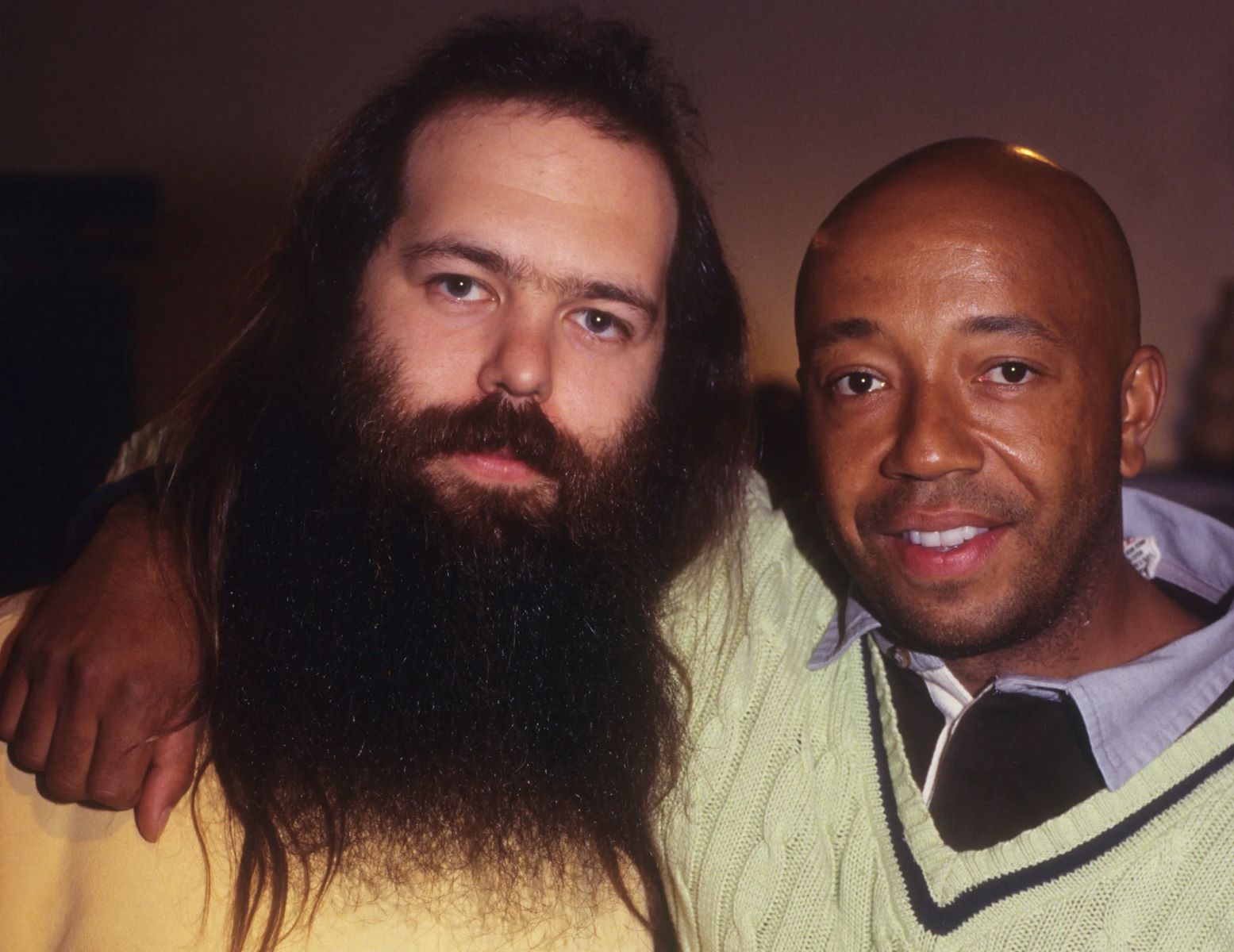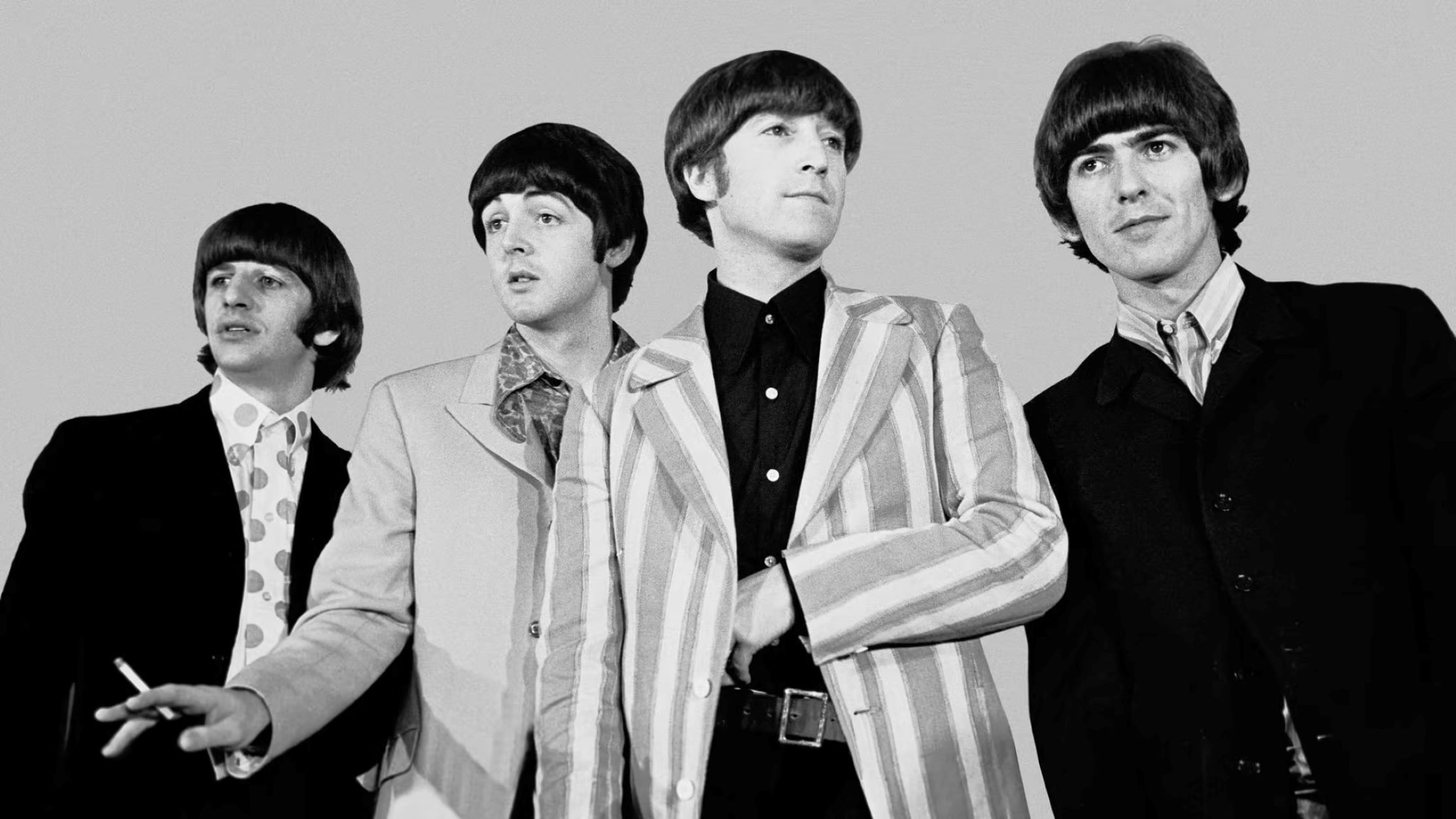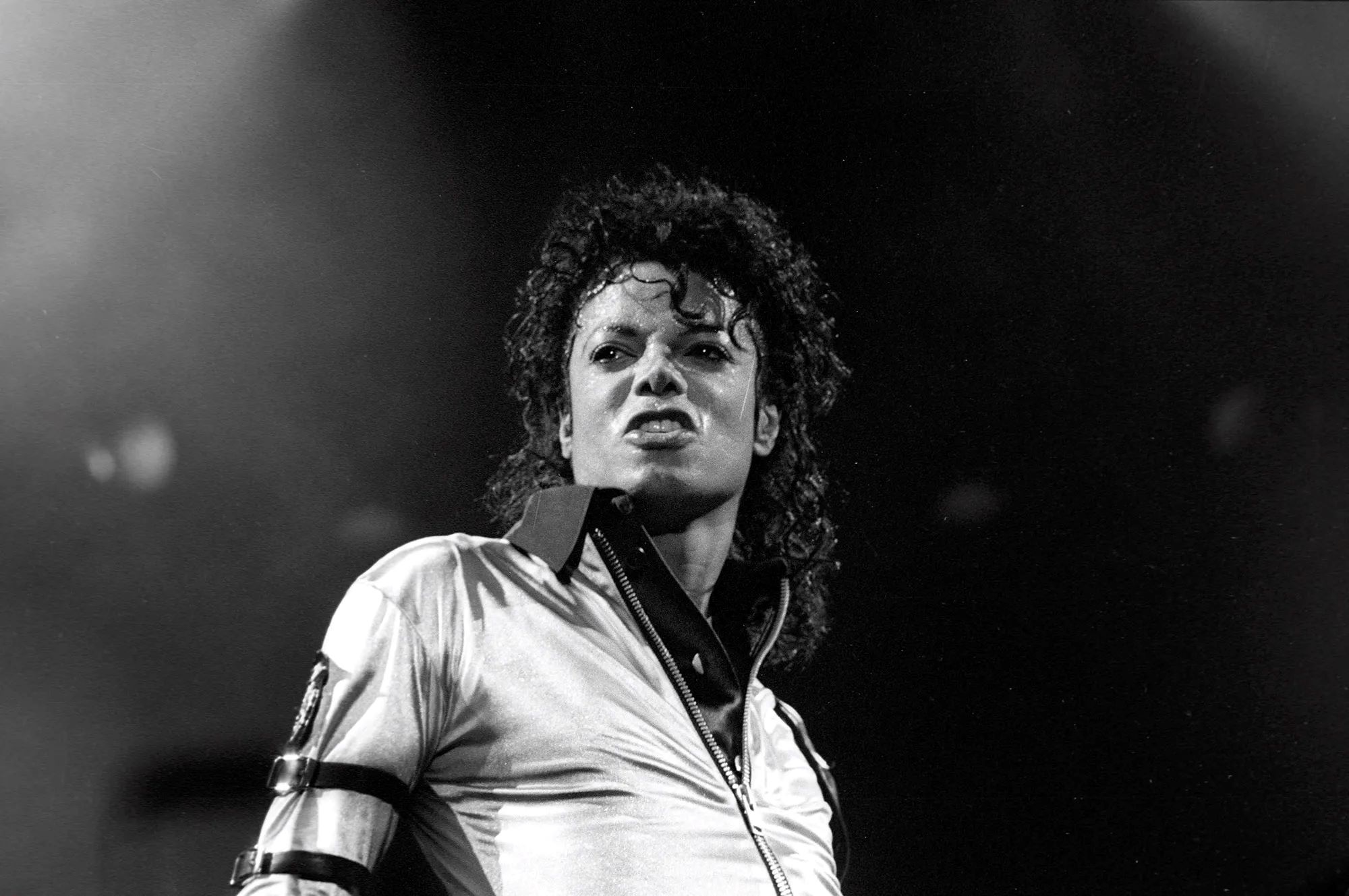Home>Production & Technology>Record Label>Which Record Label Did Russell Simmons And Rick Rubin Found


Record Label
Which Record Label Did Russell Simmons And Rick Rubin Found
Published: January 25, 2024
Discover the founding record label of Russell Simmons and Rick Rubin. Unveil the duo's journey in establishing their influential record label that transformed the music industry.
(Many of the links in this article redirect to a specific reviewed product. Your purchase of these products through affiliate links helps to generate commission for AudioLover.com, at no extra cost. Learn more)
Table of Contents
Introduction
Record labels play a significant role in the music industry, shaping the careers of artists, producing hit songs, and creating cultural movements. One iconic record label that revolutionized hip-hop and paved the way for countless artists and genres is Def Jam Recordings.
Def Jam Recordings was founded by Russell Simmons and Rick Rubin in 1983. The label quickly became a powerhouse in the music industry, becoming synonymous with hip-hop and showcasing talent like LL Cool J, Beastie Boys, Public Enemy, and Run-D.M.C. But who exactly are Russell Simmons and Rick Rubin, and how did they come together to establish one of the most influential record labels of all time?
Russell Simmons, born on October 4, 1957, in Queens, New York, grew up with a love for music and a passion for entrepreneurship. He started his career as a promoter and managed several artists before co-founding Def Jam Recordings. Simmons’s business acumen and understanding of the growing hip-hop culture played a crucial role in the label’s success.
Rick Rubin, born on March 10, 1963, in Long Beach, New York, developed an early passion for music production. He started his career by producing albums for punk rock bands before crossing paths with Russell Simmons. Rubin’s diverse musical taste and innovative production techniques would later become synonymous with the sound of Def Jam Recordings.
Together, Simmons and Rubin formed an unstoppable duo, combining their unique skills and love for music to create a label that transcended genres and captured the attention of music lovers worldwide. The next sections will delve deeper into their early lives, the formation of Def Jam Recordings, the label’s success, and the individual careers of Simmons and Rubin after their time at Def Jam.
Early Life of Russell Simmons
Russell Simmons was born on October 4, 1957, in Queens, New York. Growing up in a neighborhood heavily influenced by the emerging hip-hop culture, Simmons developed a deep appreciation for music from a young age.
Simmons’ entrepreneurial spirit was evident from an early age. In his teenage years, he started his first business venture, selling marijuana and organizing parties. These experiences gave him a taste of the music industry and set the foundation for his future endeavors.
Simmons attended City College of New York, where he initially pursued a degree in sociology. However, he eventually dropped out to focus on his passion for music and entrepreneurship. He teamed up with musician Kurtis Blow to launch Rush Productions, an artist management company, in the early 1980s.
Under Rush Productions, Simmons managed the career of Kurtis Blow and helped him achieve commercial success. This early success further fueled Simmons’ ambition to make a significant impact on the music industry.
Simmons recognized the need for a platform to showcase the emerging hip-hop talent that had been largely ignored by mainstream record labels at the time. Inspired by the success of independent labels like Sugar Hill Records, he saw an opportunity to create a label that would celebrate and uplift hip-hop culture.
Simmons’ vision and drive led him to cross paths with Rick Rubin, a fellow music enthusiast and aspiring producer. Together, they would embark on a journey that would transform the music industry forever.
Early Life of Rick Rubin
Rick Rubin, born on March 10, 1963, in Long Beach, New York, had a deep passion for music from an early age. He was exposed to various genres, ranging from rock to hip-hop, which shaped his eclectic taste in music and became a driving force in his future career.
As a teenager, Rubin formed a band called “The Pricks,” where he played guitar and started experimenting with music production. However, Rubin’s interest in producing music would eventually overshadow his desire to perform, leading him to shift his focus to behind-the-scenes production work.
Rubin attended New York University, where he enrolled in the film program. However, his true passion for music led him to drop out and pursue a career as a music producer. He started his career by producing albums for punk rock bands, including the popular band The Cult.
During this period, Rubin’s production style stood out. He had a unique ability to capture the raw energy and essence of the music he worked on, creating a distinct sound that appealed to both artists and listeners.
In the early 1980s, Rubin’s path intersected with Russell Simmons, who was on the lookout for a producer who shared his vision for a new kind of record label. Simmons was impressed by Rubin’s work and recognized the potential in his innovative approach to music production.
Rubin’s open-mindedness and willingness to experiment with different genres and sounds became an instrumental factor in the success of Def Jam Recordings. He seamlessly bridged the gap between rock and hip-hop, blending diverse musical influences to create groundbreaking tracks.
Together with Simmons, Rubin co-founded Def Jam Recordings in 1983. Their shared passion for music and their complementary skills made them a formidable team, and their collaboration would shape the landscape of the music industry for years to come.
The Formation of Def Jam Recordings
In 1983, Russell Simmons and Rick Rubin joined forces to establish Def Jam Recordings, a record label that would become synonymous with the rise of hip-hop and rap music. The label’s formation marked a turning point in the music industry, providing a platform for artists who had been marginalized and overlooked by mainstream record labels.
The idea for Def Jam came about when Simmons and Rubin recognized the immense talent and cultural significance of hip-hop music. They saw the need for a label that would celebrate the genre and provide opportunities for emerging artists to be heard.
With Simmons’ extensive knowledge of the hip-hop scene and Rubin’s innovative production techniques, the duo embarked on a journey to create a label that would revolutionize the music industry. They aimed to capture the authentic spirit of hip-hop and showcase its power to influence and inspire.
Initially, Def Jam Recordings operated out of Rubin’s New York University dorm room, with a modest budget and a do-it-yourself attitude. They worked tirelessly to discover and promote new talent, often hosting impromptu recording sessions and scouting for artists in local clubs and neighborhoods.
One of the label’s earliest breakthroughs came with the signing of LL Cool J, a young rapper from Queens, New York, who would go on to become one of the most successful artists in the history of hip-hop. LL Cool J’s debut album, “Radio,” released in 1985, showcased the raw talent and lyrical prowess that would come to define Def Jam’s sound.
The label’s success continued to grow as they signed iconic acts like Beastie Boys, Public Enemy, and Run-D.M.C. Each artist brought a unique style and perspective to the label, solidifying Def Jam’s reputation as a hotbed for innovative and boundary-pushing music.
With their combined expertise and unwavering commitment to their artists, Simmons and Rubin created a label that transcended musical boundaries. They embraced diverse genres, from rap and hip-hop to rock and R&B, fostering an environment where creativity thrived.
Def Jam Recordings became a cultural force, with its artists influencing fashion, language, and social movements. The label’s impact extended far beyond the music itself, shaping the cultural landscape of the 1980s and beyond.
The formation of Def Jam Recordings marked a pivotal moment not only in the careers of Russell Simmons and Rick Rubin but also in the history of the music industry. Their shared vision and determination to change the status quo set the stage for a new era of music, one that would continue to resonate and inspire generations to come.
Success and Impact of Def Jam Recordings
Def Jam Recordings quickly became a powerhouse in the music industry, achieving unprecedented success and leaving an indelible mark on the cultural landscape. The label’s roster of artists, innovative approach to music production, and unwavering commitment to authenticity propelled it to the forefront of the hip-hop and rap scene.
One of the defining moments for Def Jam came with the release of the Beastie Boys’ debut album, “Licensed to Ill,” in 1986. The album not only became the first rap album to reach number one on the Billboard 200 chart but also introduced a wider audience to the genre. The Beastie Boys became synonymous with Def Jam’s rebellious spirit and helped solidify the label’s reputation as a trendsetter in the industry.
Def Jam’s success continued with the emergence of Public Enemy, whose politically charged lyrics and groundbreaking sound challenged societal norms. The group’s albums, including “It Takes a Nation of Millions to Hold Us Back” and “Fear of a Black Planet,” not only achieved critical acclaim but also influenced a generation of artists and activists.
Another pivotal moment for Def Jam was the signing of Run-D.M.C., who bridged the gap between rap and rock music. Their collaboration with Aerosmith on the iconic track “Walk This Way” brought rap music to the mainstream and showcased the label’s ability to break down genre barriers.
Def Jam’s impact extended beyond its own artists. The label’s production techniques, pioneered by Rick Rubin, revolutionized the industry. Rubin’s minimalist approach and focus on capturing the raw energy of the music set a new standard for music production, inspiring countless producers and shaping the sound of hip-hop and rap for decades to come.
The success of Def Jam Recordings also had a profound influence on popular culture. The label’s artists not only dominated the charts but also became fashion icons, trendsetters, and cultural tastemakers. The Def Jam brand became synonymous with authenticity, street culture, and a rebellious attitude, influencing fashion, language, and even film and television.
Def Jam’s impact on the music industry cannot be overstated. The label’s commitment to amplifying marginalized voices and pushing boundaries paved the way for future generations of artists. It created a blueprint for independent labels and inspired a new wave of entrepreneurship within the music business.
Today, Def Jam Recordings continues to be a major player in the industry, with a diverse roster of artists spanning various genres. The label’s legacy lives on, reminding us of the power of music to break barriers, inspire change, and shape culture.
Russell Simmons’ Departure from Def Jam
After years of shaping the music industry and establishing Def Jam Recordings as a powerhouse in the hip-hop and rap scene, Russell Simmons made the difficult decision to step away from the label he co-founded. His departure marked the end of an era and signaled a new chapter in his life and career.
In 1999, Simmons sold his share of Def Jam Recordings to Universal Music Group, transitioning from his role as a label executive to focus on other ventures. This decision was prompted by a variety of factors, including a desire for personal growth and a need to explore new opportunities beyond the music industry.
Following his departure from Def Jam, Simmons dived into the world of entrepreneurship, establishing multiple successful businesses. He co-founded the fashion brand Phat Farm, which became a prominent name in urban fashion and streetwear. The brand’s success further solidified Simmons’ entrepreneurial prowess and his ability to tap into popular culture.
Simmons also ventured into the world of media, creating the ground-breaking Def Comedy Jam series. The show provided a platform for African-American comedians to showcase their talent and became a cultural phenomenon, influencing both comedy and television for years to come.
Additionally, Simmons explored the wellness industry and founded the lifestyle brand Rush Communications, which focused on yoga, meditation, and promoting a healthy and balanced lifestyle. His advocacy for mindfulness and self-care resonated with audiences and inspired a new wave of wellness enthusiasts.
Despite stepping away from the day-to-day operations of Def Jam Recordings, Simmons’ impact and influence continued to shape the music industry. His vision and entrepreneurial spirit set the stage for the success of countless artists and independent labels that followed in his footsteps.
However, in recent years, Simmons has faced allegations of sexual misconduct and assault, which he has vehemently denied. The controversy surrounding these allegations has cast a shadow over his legacy and led to his resignation from various ventures, including his leadership roles in his business empire.
It is important to acknowledge both Simmons’ contributions to the music industry and the serious allegations against him. The discussions surrounding these allegations have sparked broader conversations about power dynamics, accountability, and the importance of creating safe environments in the music and entertainment industries.
Russell Simmons’ departure from Def Jam Recordings marked the end of a transformative era in music. While his career has seen both remarkable successes and significant challenges, his impact as a co-founder of Def Jam and a cultural icon cannot be understated.
Rick Rubin’s Career after Def Jam
After parting ways with Def Jam Recordings, Rick Rubin embarked on a diverse and prolific career that solidified his position as one of the most influential figures in the music industry. While his time at Def Jam propelled him to great heights, Rubin’s post-Def Jam journey showcased his versatility as a producer and his ability to transcend genres.
Following his departure from Def Jam, Rubin founded American Recordings, an independent label that allowed him to explore his musical passions without constraints. Under this new venture, Rubin worked with a wide range of artists, from rock legends like Johnny Cash and Tom Petty to contemporary acts like Red Hot Chili Peppers and System of a Down.
One of Rubin’s notable collaborations during this period was with Johnny Cash. Together, they produced a series of critically acclaimed albums that reinvigorated Cash’s career and introduced him to a new generation of listeners. The raw and introspective sound of these albums captured the essence of Cash’s musical legacy and showcased Rubin’s ability to bring out an artist’s authentic voice.
In addition to working with established artists, Rubin also played a pivotal role in shaping the careers of emerging musicians. He produced Adele’s breakout album, “21,” which became a global sensation and solidified her status as one of the most influential artists of her generation. Rubin’s minimalist production style allowed Adele’s powerful vocals to take center stage, contributing to the album’s immense success.
Rubin’s influence extended beyond his work as a producer. He founded the label Def American, which later became American Recordings, and brought attention to alternative and underground artists who were pushing the boundaries of popular music. His open-mindedness and willingness to embrace diverse sounds and styles helped shape the alternative music scene in the 1990s.
In recent years, Rubin has continued to collaborate with a wide range of artists, experimenting with different genres and styles. He has worked with artists such as Kanye West, Jay-Z, Ed Sheeran, and Lady Gaga, approaching each project with the same dedication and passion that defined his work at Def Jam.
Rubin’s production style, characterized by his minimalist approach and emphasis on capturing the essence of the music, has become iconic in the industry. His influence can be heard in countless songs and albums that have gone on to achieve critical acclaim and commercial success.
Beyond his work as a producer, Rubin has also become an esteemed figure in the world of meditation and spirituality. He has explored Eastern philosophies and has been known to incorporate mindfulness practices into his creative process. This holistic approach to music and life reflects Rubin’s ongoing quest for self-discovery and personal growth.
Rick Rubin’s career after his time at Def Jam Recordings demonstrates his remarkable talent as a producer and his willingness to push boundaries and explore new artistic frontiers. His work continues to shape the music industry and inspire a new generation of musicians and producers.
Conclusion
Russell Simmons and Rick Rubin, the visionary minds behind Def Jam Recordings, forever transformed the music industry. Their collaboration resulted in the creation of a label that transcended genres and became a global cultural phenomenon.
Def Jam Recordings revolutionized the hip-hop and rap scene, giving a voice to artists who had been marginalized by mainstream record labels. Simmons and Rubin’s shared vision and relentless dedication to authenticity allowed them to build a platform that celebrated the power and influence of hip-hop music.
Through the label, Simmons and Rubin introduced the world to legendary artists like LL Cool J, Beastie Boys, Public Enemy, Run-D.M.C., and many more. Their ability to identify talent and nurture artists’ creativity ensured that each release on Def Jam was groundbreaking and impactful.
The success of Def Jam Recordings extended beyond the music itself. The label became a cultural force that influenced fashion, language, and social movements. It empowered a generation of artists to express their truth and provided a platform for underrepresented voices.
As with any journey, both Simmons and Rubin ventured into new paths after their time at Def Jam. Simmons embarked on various business ventures and became an influential figure in entrepreneurship and wellness. Rubin continued his career as a producer, collaborating with musicians across genres and pushing the boundaries of what was possible in music production.
While Simmons and Rubin have faced their own setbacks and controversies, their contributions to the music industry cannot be denied. They laid the groundwork for countless artists and labels to thrive, leaving an enduring impact on the cultural landscape.
Today, the legacy of Def Jam Recordings lives on. The label continues to be a powerhouse in the industry, discovering and nurturing emerging talent and shaping the soundscape of contemporary music.
The story of Russell Simmons, Rick Rubin, and Def Jam Recordings serves as a testament to the power of passion, innovation, and resilience. Their journey reminds us that music has the ability to shape culture, break barriers, and bring people together.
As we celebrate their contributions, we acknowledge that their story is not without its complexities. It is important to engage in conversations about the values upheld by the music industry and work towards creating a more inclusive and ethical landscape for artists.
Russell Simmons and Rick Rubin’s legacy will forever be intertwined with the rise of Def Jam Recordings – a label that has indelibly shaped the music industry and continues to inspire generations to embrace the power of artistic expression.











